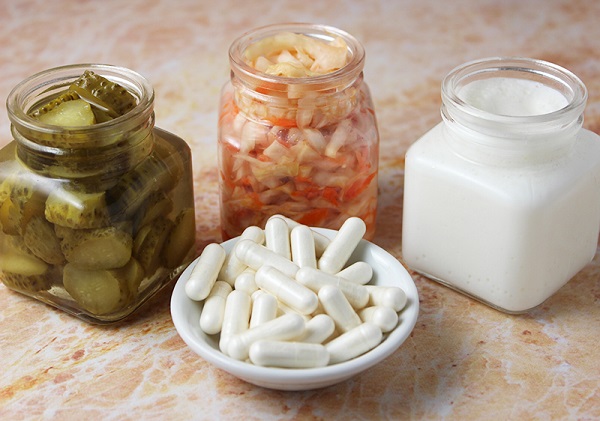Lifestyle News: Fashion, Health, Relationships & More | The Mirror - Graphic Online

What are the benefits of probiotics?
It has been argued that everything exists in a balance. There is a balance between good and bad and the human body has not been spared this balance. We have all got a well maintained balance between good microorganisms or microbes usually bacteria and bad ones.
This balance is seen in the respiratory tract, the intestines and other bodily orifices. A disturbance of this balance leads to an overgrowth of one.
As expected, nobody wants to have a balance which is tipping in favour of the bad microbes. In such instances, a disease invariably results.
Within our gastrointestinal tract - mouth through the intestines to the anus, there is a complex ecosystem containing over 400 bacterial species (microflora) found mainly in the large intestine (colon).
This intestinal microflora help in vital processes of the body such as aid in digestion, synthesis of vitamins and nutrients, the metabolism of some medications, supporting the development and functioning of the gut, and enhance the immune system.
These useful bacteria naturally are acquired from the maternal birth canal during the birth process. They are not acquired or are delayed in their acquisition when birth is through a caesarean section.
When the digestive tract is healthy, it filters out and eliminates things that can damage it, such as harmful bacteria, toxins, chemicals and other waste products. Poor food choices, emotional stress, lack of sleep, antibiotic overuse, effects of other drugs and environmental influences can have deleterious effects on the gut and shift the balance in favour of the bad bacteria with the potential of causing disease.
This is where probiotics come in.
Probiotics are live microorganisms (e.g., bacteria) that are either the same as or similar to microorganisms found naturally in the human body that are beneficial to health. Probiotics are believed to protect us in two ways.
First, is the role they play in our digestive tract. Probiotics work essentially by replenishing the intestinal ecosystem. This it does through reduction of harmful organisms in the intestine and produce antimicrobial compounds that destroy or suppress the growth of harmful microorganisms. The resultant effect is to either restore or ensure that the digestive tract remains healthy.
The second way that probiotics help is the impact they exert on our immune system. Our immune system is our protection against germs.
When it doesn't function properly, we can suffer from allergic reactions, autoimmune disorders (such as, ulcerative colitis, Crohn's disease and rheumatoid arthritis), and infections (such as, infectious diarrhoea) Helicobacter pylori infection (implicated in ulcer formation), skin infections and vaginal infections. By maintaining the correct balance from birth, the hope will be to prevent these ailments.
Our immune system can benefit anytime that balance is restored and that is why probiotics is being talked about everywhere and is a subject of voracious scientific research.
Probiotics are available to consumers in oral products such as dietary supplements and yogurts, as well as other products such as suppositories and creams. There are several different kinds of probiotics, and their health benefits are determined by their actions in the gut.
Lactobacilli boasting of more than 50 strains of these good bacteria are naturally found in the digestive, urinary and genital systems. Foods that are fermented, such as yogurt, and dietary supplements also contain these bacteria. Lactobacillus has been used for treating and preventing a wide variety of diseases and conditions.
Bifidobacteria make up approximately 90 per cent of the healthy bacteria in the colon. They appear in the intestinal tract within days of birth, especially in breastfed infants. Some studies have revealed that Bifidobacterium infant is given over a four-week period to infants showed improvement in the symptoms of abdominal pain, bloating, bowel dysfunction, incomplete evacuation, straining and the passage of gas.
Enterogermina, another probiotic on the market employs the use of spores of the good bacterium Bacillus clausii. It reestablishes the balance of intestinal flora that have undergone alteration from myriads of causes. The spores colonise the intestinal wall and provoke immune response to get rid of the bad bacteria.
It appears that most people can use probiotics without experiencing any side effects—or with only mild gastrointestinal side effects such as gas.
A member of Paediatric Society of Ghana
